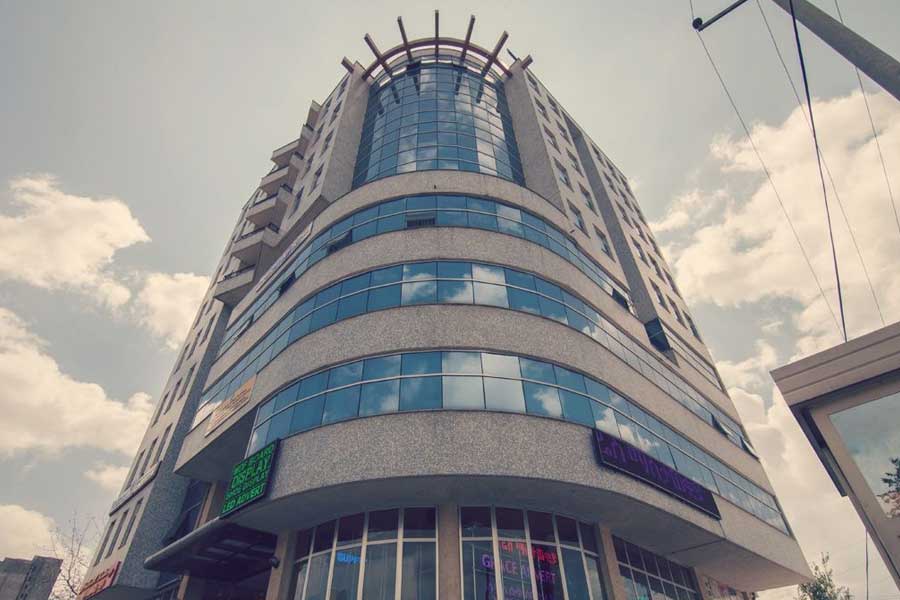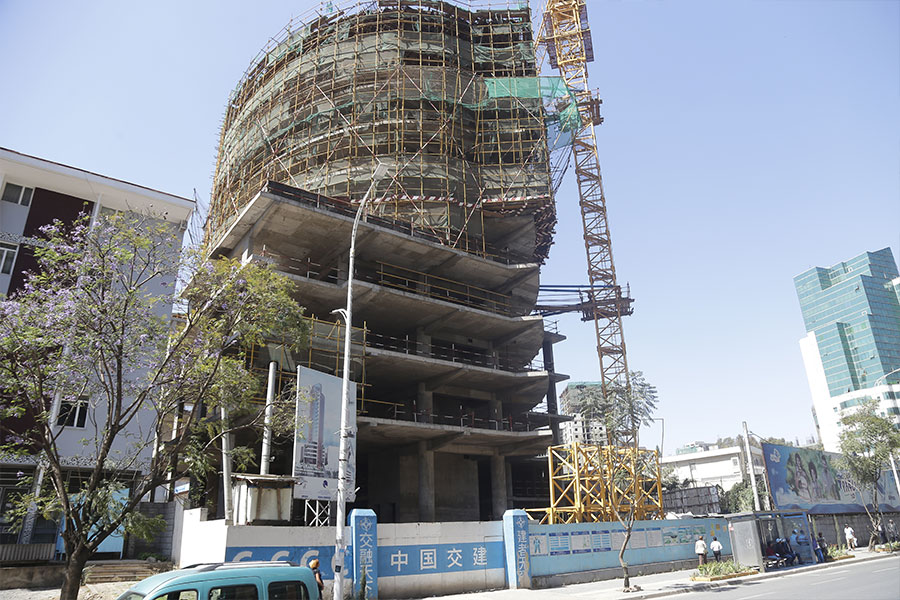
Viewpoints | Jan 28,2023
The African Union headquarters has suffered a cyberattack that required temporarily closure of its network and suspension of several functions for over a week. The IT department was forced to enforce an unprecedented emergency shutdown of the ICT systems on March 3, 2023, due to a possible compromise of the data centre and digital infrastructure.
The source of the attack is unknown, and investigations are ongoing to identify the root vulnerabilities that led to the breach and the extent of the damage.
The headquarters of the continent’s premier institution, designed by a Chinese firm, Tongji Architectural Design (Group), is a sprawling facility on Ras Lulseged Street that includes a 21-story office building, housing the administrative departments of the African Union Commission, a 2,505-person capacity plenary chamber, and a sub-conference building with 32 conference rooms.
The attack prompted an unprecedented emergency shutdown of AU’s ICT systems. Efforts were underway to respond and contain the extent of the breach, with essential services being continued at limited capacity, while services related to Human Resources were processed manually within the week.
The AU information system staff have taken measures to sequester the network to properly identify the root vulnerabilities that led to the breach and the extent of its damage.
Staff members were forced to use their hotspots as several services and applications in the compound were cut off. IT department staff were working to restore the system to full functionality, but employees have been advised to use mobile hotspots and dongles to access the internet for critical daily operations.
Gamal Eldin Ahmed, senior communications officer at the AU and not an IT expert, was among the AU staff using their own devices to perform necessary services on the web during the week. He was waiting to be informed by the IT department last week on the exact cause of the situation.
“It should be back up any time now,” Ahmed told Fortune last week, referring to the unusual disruption of ICT services.
The cyberattack has damaged several devices, including laptops and desktops, causing difficulties for embassies in the capital to access the AU’s network. Many have resorted to calling the phone number available on the AU website, hoping to gain access.
The incident occurred only three weeks after the capital hosted the 36th ordinary session, during which several heads of state convened. The AU summit saw events unfold, from the President of Comoros, Azali Assoumani, taking the chair position to Israel’s representative being escorted out. The summit’s highlights included the accelerated implementation of the African Continental Free Trade Area (AfCFTA) and appeals for debt restructuring to combat climate change.
The incident at the AU headquarters highlights the increasing threat of cyber-attacks across the globe. According to Checkpoint Research, global cyberattacks increased by 38pc last year compared to the previous year. The research also revealed that Africa was home to the most attacks, averaging 1,875 weekly attempts. Checkpoint, which has a team of over 150 analysts and researchers offering cyber threat intelligence to its customers and the global intelligence community, has forecasted that further increases in cyber attacks are likely, with AI tools like Chat GPT making it possible to generate malicious code and email at a much faster rate.
PUBLISHED ON
Mar 11,2023 [ VOL
23 , NO
1193]

Fortune News | May 16,2020

Obituary | Mar 26,2022

Radar | May 11,2019

Editorial | Feb 17,2024

Fortune News | Jan 14,2023

Dec 22 , 2024 . By TIZITA SHEWAFERAW
Charged with transforming colossal state-owned enterprises into modern and competitiv...

Aug 18 , 2024 . By AKSAH ITALO
Although predictable Yonas Zerihun's job in the ride-hailing service is not immune to...

Jul 28 , 2024 . By TIZITA SHEWAFERAW
Unhabitual, perhaps too many, Samuel Gebreyohannes, 38, used to occasionally enjoy a couple of beers at breakfast. However, he recently swit...

Jul 13 , 2024 . By AKSAH ITALO
Investors who rely on tractors, trucks, and field vehicles for commuting, transporting commodities, and f...

Oct 18 , 2025
The political establishment, notably the ruling party and its top brass, has become p...

Oct 11 , 2025
Ladislas Farago, a roving Associated Press (AP) correspondent, arrived in Ethiopia in...

Oct 4 , 2025
Eyob Tekalegn (PhD) had been in the Governor's chair for only weeks when, on Septembe...

Sep 27 , 2025
Four years into an experiment with “shock therapy” in education, the national moo...